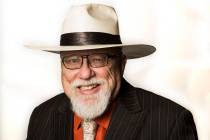Planning for end a gift to family
A ventilator kept my father alive. His heart couldn’t do its job.
He lay in the hospital bed with more tubes seemingly pushed into him each day.
A decorated World War II veteran, he deserved far better than the death he got. I knew him well enough to know that had he been able to talk, he would have told doctors to pull the plug.
There is no way he would have allowed himself to lie there day after day, helpless, shriveling before our eyes, unable to even breathe on his own.
But our family never talked about the kind of care we wanted or didn’t want at the end.
Given her grief, my mother couldn’t possibly tell the doctor to turn off the life support on the man to whom she had been married for a half-century. My two brothers knew what had to be done but, recognizing Mother’s pain, didn’t want to try to convince her that the decision had to be made.
Crying, I finally told my mother what she already knew — Dad wouldn’t want this. I can still see her face twisted in agony as she nodded, accepting that the miracle the doctor said would be necessary for Dad to live wasn’t going to take place.
Ever since I heard that a national campaign is being launched this holiday season to encourage families to start conversations about end-of-life issues — the idea is to do this when families spend time together — I’ve thought about those terrible days around Dad’s 2002 death.
It didn’t sound strange to me at all when Sandy Markwood, CEO of the National Association of Area Agencies on Aging, which is partnering with The Conversation Project on the campaign, told me one of the greatest gifts a family could receive this Christmas is at least the beginning of a conversation on end-of-life matters.
To know what a mom or dad’s desires are for care at the end of life — coupled with their completed advance directives spelling out decisions on medical care ahead of time — not only ensures that his or her wishes are honored, it also avoids pushing families already under unbelievable stress into a gut-wrenching crisis that can cause a family to fracture at a time when relatives most need each other for support.
That would surely be a gift.
The campaign is based on a recent survey by The Conversation Project — a nonprofit organization dedicated to help people talk about their wishes for end-of-life care — which found that 90 percent of Americans know they should have a conversation about what they want at the end of life, yet only 30 percent did so.
Those numbers show just how uncomfortable people are talking about dying.
To make end-of-life conversations easier, the campaign partners have released a free guide that covers everything from how to initiate conversations to the right questions to ask loved ones about health, legal, financial and other end-of-life issues. You can download it at www.eldercare.gov and Jane Gruner, head of Nevada’s Aging and Disability Services Division, said copies of it will be available at senior centers.
Gruner also said Southern Nevadans with questions about the guide that includes information on advance directives — forms are available through her offices and area hospitals — can phone her division’s regional office in Las Vegas at 702-486-3545. The guide will be mailed to those without computers.
Markwood stresses that the guide, which provides insight into how people can formalize who will make decisions on financial and health care matters if a loved one can’t speak, also deals with situations where death may not be imminent.
Far too many families, she said, can’t even tell physicians what medications a loved one has been on if he ends up in the emergency room after a heart attack, stroke or car accident. Nor do families often know who the primary doctors are for Mom or Dad, or whether there is insurance for long-term care.
If end-of-life wishes do need to be known, literature from The Conversation Project points out, the place to learn them “is at the kitchen table — not the intensive care unit.”
Don’t end up like my dear mother as she stood at the bedside of my unresponsive father and sobbed:
“Oh, Bill, why didn’t you tell me what to do?”
Paul Harasim is the medical writer for the Las Vegas Review-Journal. His column appears Mondays. Harasim can be reached at pharasim@reviewjournal.com or 702-387-2908.

















